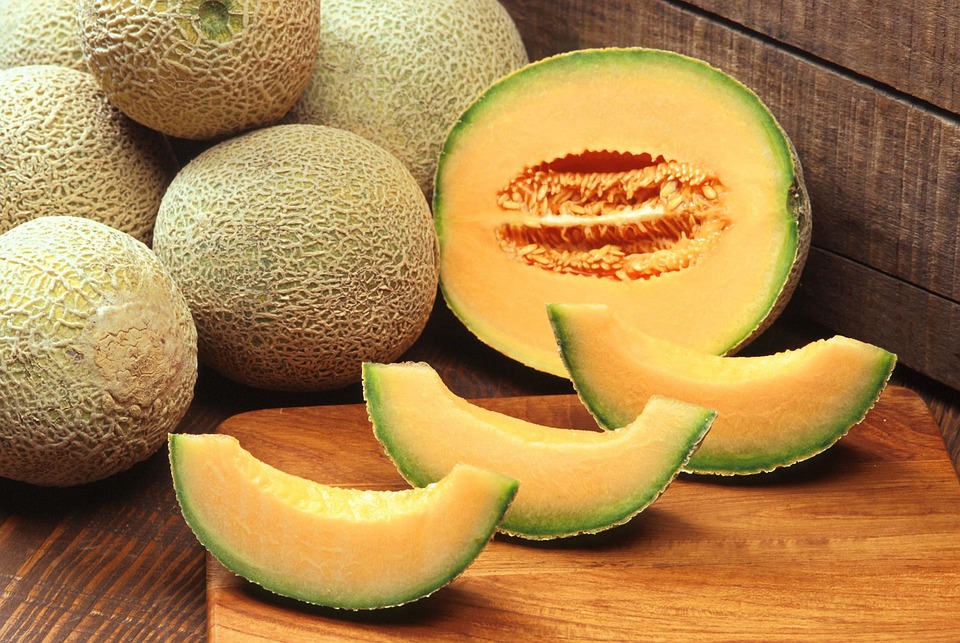Health Benefits of Pineapples
Today I'd like to tell you about the fantastic health benefits of pineapples and the reason why I eat pineapple as well as two other fruits almost every day with my morning oats. Not only are pineapples a rich source of vitamin C and calcium, but they also contain substances that keep bones healthy and promote digestion. You know that we need calcium to prevent osteoporosis, the bone-thinning disease that primarily affects postmenopausal women.
What they don't know is that your bones need manganese as well. The body uses manganese to make collagen, a tough fibrous protein that helps build connective tissues like bone, skin and cartilage. Research has shown that people deficient in manganese develop bone problems similar to osteoporosis. One study found that women with osteoporosis had lower levels of manganese than women who did not have the disease.
Pineapples are real tropical champs because the healing power they bring to the table is remarkable. They can help keep bones healthy. They improve digestion, they relieve colds and flu symptoms, and they lower the risk of cancer and heart disease.
Eating fresh pineapple or drinking pineapple juice is an excellent way to add manganese to your diet. A cup of fresh pineapple chunks or pineapple juice will give you over 2 milligrams of manganese, more than 100 per cent of the Daily Value (D.V.)
Golden Pineapples from Costa Rica
Health Benefits of Pineapples - Sweeten your Digestion
Pineapple has a centuries-old reputation for relieving indigestion, and there may be a good reason for that. Fresh pineapple contains bromelain, an enzyme that helps digestion by breaking down protein. It might be imperative mainly if you are an older person who has low levels of stomach acid because this is vital for protein digestion.
Even if you love pineapple, of course, it's unlikely you'd eat it after every meal. But if you are older and have frequent indigestion, adding a few pineapple slices to your dessert plate might help keep your stomach calm.
Pineapple Plant

Health Benefits of Pineapples - A Great Source of Vitamin C
Few nutrients get as much attention as vitamin C, and for a good reason. This vitamin is a powerful antioxidant, meaning it helps thwart free radicals, unstable oxygen molecules that damage cells and contribute to the development of cancer and heart disease. Besides, the body uses vitamin C to make collagen, the "glue" that holds tissue and bone together. And when you have a cold, the first thing you reach for is vitamin C. It reduces levels of a chemical called histamine, which causes such severe symptoms as watery eyes and runny noses.
While pineapples aren't rich in vitamin C as oranges or grapefruits, they are still excellent sources. One cup of pineapple chunks, for example, contains about 24 milligrams of vitamin C, 40 per cent of the Daily Value. Fresh pineapple juice is even better. A glass of pineapple juice contains 60 milligrams, 100 per cent of the D.V.
Pineapple Market
Health Benefits of Pineapples - Getting the Most
Buy it fresh. Canned pineapple is convenient, but when you're eating it to soothe an upset stomach, the fresh fruit is best because the intense heat used in canning destroys a compound known as bromelain.
Bromelain is an enzyme extract derived from pineapples, particularly the stems, though it also exists in all parts of the fruit. Bromelain has an anti-inflammatory effect and is, therefore, also used as a medicine for reducing sinusitis as well as other parts of your body.
Try a new variety. The next time you're in the store, look for a "Golden" pineapple. Imported from Costa Rica, this variety is lovely and sweet, and it has more than four times the vitamin C found in other types.
Have some juice. Canned pineapple juice is an excellent way to get your Daily Value and vitamin C. In fact, four ounces of pineapple juice contains more vitamin C than the same amount of apple, cranberry or tomato juice.
Health Benefits of Pineapples
Health Benefits of Pineapples - In your Home
With its tough skin and sharp edges, the pineapple doesn't give up its sweetness easily. To choose the best fruit and get the "heart of gold" inside, here's what you need to do.
Buy it firm. Find a fruit that's plump and firm. Avoid pineapples that are bruised or have soft spots. Surprisingly, shell colour is not always a reliable indicator of ripeness. The stem end should have a sweet aromatic fragrance and not smell fermented.
Look for freshness. The leaves on pineapples should be crisp and deep green, without yellowed or brown tips. Don't bother testing the fruit by pulling a blade from the crown. Contrary to popular wisdom, a leaf that comes off easily doesn't indicate that the fruit is ripe.
Reveal the fruit. When you get the pineapple home, cut off the top and bottom ends, then place it on its side in a shallow dish to catch the juices as you slice it. Cut it into 1/2 inch slices and trim away the rind. Then use a sharp knife - or better yet, a small cookie cutter - to remove the sturdy core.
Other fruits with health benefits you may like to try
Love Travel Eat Right - Disclaimer
Please take note that the information on this site is designed for educational purposes and is intended solely for a general readership. The contents herein are not intended to offer any personal medical advice or to diagnose any health issues you may have. This information is also by no means a substitute for medical care by a licensed healthcare provider. For that, you'd need to consult your medical doctor or a health care practitioner for any advice should you require prescription medication.





